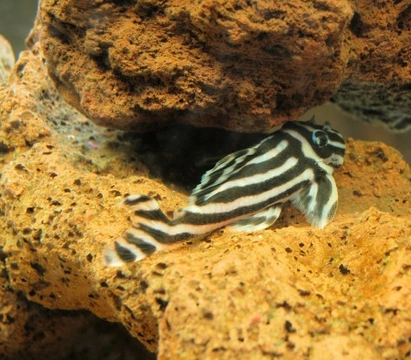
Keeping catfish as pets
Catfish make for excellent and very interesting pets within aquariums of all types, and with the wide range of different species available, there is one to suit every set up from tropical to marine to cold water. Catfish can be kept in a special aquarium all of their own, or complement an existing set-up containing other fish, where they will actually help to keep the tank clean and tidy by eating the food and detritus that falls to the bottom of the tank.
If you are wondering about keeping catfish or want to find out more about catfish and if they might suit your current aquarium set up, read on for some more information.
Why do catfish make for good pets?
Catfish are excellent aquarium fish for all types of reasons. They come in a wide range of shapes and sizes from the small to the very large, and with their signature whiskers and wide mouths, are instantly identifiable and among the most interesting-looking of fish tank fish. They will clean the substrate and walls of the tank and help to keep the algae under control, and recycle waste and food left behind by other fish.
As adept scavengers that are used to living in all sorts of environments, catfish are also very hardy, and will be very forgiving of the odd mistake in their keeping. They are not prone to ill health and often live for many years, as well as being very low maintenance to keep.
Catfish are relatively slow-moving and gentle fish, and are not prone to attacking or being aggressive with smaller fish. However, they may potentially hone in on or bully sickly fish, which they may see as an easy meal! If your tank contains aggressive fish, make sure that these do not bully your catfish, as your catfish will then either become stressed and unhappy, or potentially fight back!
Catfish are benthic
The term “benthic” is a great word to pull out in a game of Scrabble, as well as being a very interesting term in its own right! “Benthic” means an animal that dwells on the bottom of the tank (or the floor of the ocean) and lives on the substrate, which they will sift through and use as a source of food. Smooth gravel or soft sand provides the perfect substrate for catfish, as they will often use their mouths to sift through the base of the tank, and sharp stones or sand can injure their mouths.
While catfish are not among the most shy of fish and will usually be fairly visible within the bottom levels of the tank, it is also important to provide them with a nice hiding place that they can use if they want to, and to provide a comfortable, smooth flat stone that they can use to rest on.
Feeding catfish
As mentioned, catfish will seek out their food from the substrate of the aquarium, which means that they will pick up food that is dropped by fish that swim higher up. However, if you feed your fish floating or flaked food, you may find that your catfish goes hungry, and so supplementing your tank’s feeding routine with some sinking catfish pellets is also recommended. Most catfish species are nocturnal, and prefer to be fed at night when the aquarium lights are out, so bear this in mind when working out your feeding regime.
Good catfish for a mixed tank
There are hundreds of different species of catfish in the world, which dwell in all sorts of environments from freshwater to brackish water to marine environments, and at all sorts of temperatures.
If you are looking for a good catfish to add to a mixed tropical freshwater set up, again, there are plenty of options out there! One important factor to bear in mind when choosing catfish is to find out exactly what species is being offered for sale, so that you do not mistake a small juvenile of a large species for a fully grown small fish!
Some of the best catfish to consider adding to a mixed aquarium tank are:
Zebra Pleco
The Zebra Pleco has distinctive stripes, making them one of the most visually appealing of all of the catfish. However, the Zebra is not that great at hoovering up algae, and instead prefers meat and fish based foods offered on the substrate of the tank.
Cory
The Cory (Corydora) comes in several varieties in itself, and does well in small groups of other Corys within a mixed tank.
Bristle-nosed catfish
The Bristle-nosed catfish is excellent for keeping tank algae and mess to a minimum, as this fish is a fastidious tank cleaner that will look in all of the nooks and crannies of the tank to get their algae fix! They also eat pellets and food from the substrate of the tank too.
Clown catfish
The spotty and attractive Clown catfish is very lively and entertaining to watch, but is best kept without other bottom-dwelling fish, as it can be territorial.



